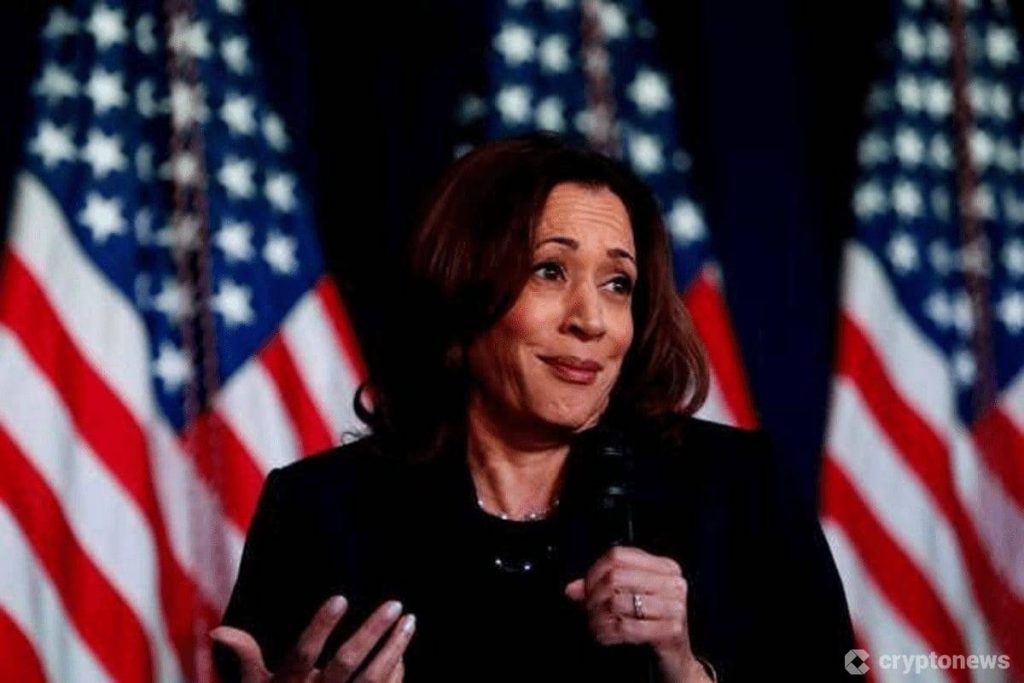Chris Larsen, co-founder of Ripple, made a significant donation of $1 million in XRP to Vice President Kamala Harris’s presidential campaign on August 14. The donation, categorized as a non-contribution account, amounted to 1,754,815.29 XRP and was not liquidated. This marked the first crypto contribution to Harris’s campaign and was facilitated through the Future Forward PAC, which converts digital assets into USDC using Coinbase Commerce. The PAC has received over $200 million in contributions, including from prominent figures like Michael Bloomberg, Reid Hoffman, and the cryptocurrency exchange Coinbase. Initially supporting President Joe Biden’s reelection efforts, the PAC shifted its focus to Harris’s campaign.
In addition to Larsen’s donation, Tether co-founder Phil Potter contributed nearly half a million dollars to the Commonwealth Unity Fund, a super PAC supporting Jonathan Deaton’s challenge against Senator Elizabeth Warren. Other notable industry figures, such as those associated with Ripple and Gemini co-founders Cameron and Tyler Winklevoss twins, have also contributed to the CUF. The super PAC has raised over $2.5 million in support of Deaton’s campaign. The involvement of these cryptocurrency industry leaders in political contributions highlights the growing influence of digital assets in the U.S. political landscape.
The role of cryptocurrency in the upcoming November 5 election has become a contentious issue, with contrasting views from candidates. Vice President Harris outlined her administration’s approach to digital assets in her economic plan, expressing support for technologies like artificial intelligence and digital assets while prioritizing consumer and investor protection. On the other hand, Republican candidate Donald Trump has promised to stop what he perceives as an “unlawful and un-American crackdown” on the U.S. cryptocurrency industry, indicating a more favorable stance toward the sector. The differing perspectives of the candidates reflect the complex relationship between cryptocurrency and government regulation.
As the 2024 election approaches, the influence of cryptocurrency in campaign finance is likely to expand. The use of digital assets in donations, as seen with Larsen’s contribution to Harris’s campaign, represents a new frontier in campaign finance. Platforms like Coinbase Commerce enable the seamless conversion of digital assets into traditional currency, making it easier for cryptocurrency holders to participate in political fundraising. With notable figures from the industry contributing substantial sums to political causes, the intersection of cryptocurrency and U.S. elections is becoming increasingly significant.
The involvement of key cryptocurrency industry leaders in political contributions raises questions about the potential impact of digital assets on political campaigns. The support from individuals like Chris Larsen and Phil Potter can sway the financial landscape of electoral contests, influencing the resources available to candidates. As the cryptocurrency sector continues to grow and gain mainstream acceptance, its role in campaign finance is likely to attract more attention and scrutiny. The transparency and regulations surrounding crypto donations in political campaigns will become crucial issues for lawmakers and regulators to address in the future.
Overall, the intersection of cryptocurrency and the U.S. election process is a complex and evolving phenomenon. The contributions from industry leaders like Chris Larsen and Phil Potter demonstrate the increasing involvement of digital assets in political fundraising. Candidates’ differing stances on cryptocurrency regulation further underscore the significance of this issue in the political landscape. As the 2024 election unfolds, the role of cryptocurrency in campaign finance is likely to remain a point of debate and scrutiny, shaping the future of both digital assets and government regulation in the United States.


